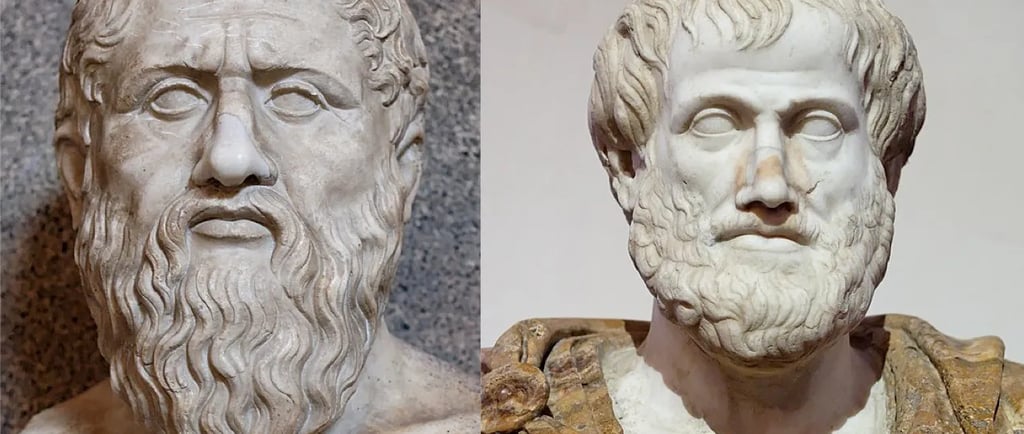What are the Similarities between Plato and Aristotle?
What happens when a philosopher-king meets a scientist of politics? 🧠 Explore how Plato and Aristotle, despite their differences, laid the foundations of Western political theory. From virtue ethics to their critique of democracy, their shared vision shaped everything from ancient city-states to today’s political institutions. A must-read for UPSC PSIR, philosophy students, and anyone who wants to understand how politics and ethics first came together.
PSIR
8/4/20252 min read


🔍 Introduction: Teacher & Student, Thinkers for the Ages
The relationship between Plato and Aristotle is one of the most profound intellectual continuities in political theory. Though they disagreed sharply, they also shared a commitment to understanding justice, governance, and the purpose of political life. Their debates and agreements provide the blueprint for political science as we know it.
🧠 Shared Epistemology: Truth Over Opinion
Both thinkers stood firmly against relativism and sophism:
Plato used the dialectical method—questioning and reasoning toward truth.
Aristotle relied on empirical observation, collecting and analyzing real-world data.
🎯 Common Ground: They believed political knowledge must be rational and objective, not just based on custom or convenience. This turned politics into a theoretical discipline, not just practical know-how.
🏛️ Teleological View of the State: More Than Just Survival
Both saw the state as a means to a higher moral purpose:
Plato's Republic aimed at achieving justice and human perfection.
Aristotle’s Politics called the polis the highest form of community, aiming for eudaimonia (the good life).
📌 Shared Insight: The state exists not just for order, but to help people live virtuously and flourish. This idea laid the groundwork for normative political theory—how the state ought to be.
⚖️ Cautious About Democracy
Though often misread today, both Plato and Aristotle were skeptical of Athenian democracy:
Plato feared mob rule, where opinion overpowers wisdom.
Aristotle warned of ochlocracy—democracy gone bad, ruled by the poor majority without virtue.
🧠 Their Common View: Governance must be merit-based, led by the wise and virtuous, not just the loudest voices. This debate continues in modern democratic theory—expert rule vs mass participation.
🧬 Virtue Ethics: The Heart of Political Life
Perhaps their greatest agreement lies here:
Plato insisted rulers must embody the four cardinal virtues—wisdom, courage, temperance, and justice.
Aristotle believed the main role of the state was to develop moral character in citizens.
🔥 Impact: They made virtue the benchmark of political legitimacy, not just procedure or results. This stands apart from modern frameworks like utilitarianism or rights-based liberalism.
🧾 Conclusion: A Lasting Legacy
Despite methodological divides, Plato and Aristotle laid down the foundational pillars of political thought:
Objective inquiry in politics
State as a moral project
Qualified critique of democracy
Ethics at the core of governance
Their theories continue to shape debates on political leadership, institutional ethics, and the role of citizens in a good society. Whether you’re preparing for UPSC Mains, teaching political theory, or just curious—understanding Plato and Aristotle is like meeting the parents of modern political science.